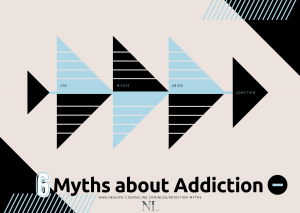Substance Abuse
26 Outstanding Books about Addiction and Healing
Here is a list of some favorites. Not all of these books are faith-based or written by Christians, but they are inspiring and raw. They tell the truth from the perspective of the writer, meaning that this was the life they lived and how they clawed their way out. 1. Drinking: A Love Story By…
Read More6 Myths About Addiction
Many people don’t understand addiction and substance abuse or dependency. They think those who struggle with addiction must lack moral substance or willpower. In reality, breaking the cycle of addiction takes far more than an iron will or even a desire to quit. Addictive substances and behaviors quite literally alter the chemistry of the brain…
Read More

